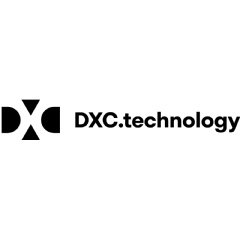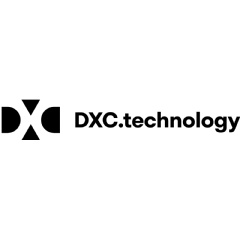
More than 70 percent of consumers prefer to shop for consumer goods either in-store or online from retailers with a physical presence, as opposed to 29 percent who shop primarily online, according to survey results announced today by DXC Technology (NYSE: DXC) and published in an IDC InfoBrief.Contrary to increasingly common belief, the survey revealed that showrooming strengthens brick-and-mortar stores, with 36 percent of consumers buying in-store after exploring products online. Ninety-four percent of shoppers say a store associate’s help is important in feeling confident they are buying the right product.The results are from a web-based survey of 1,000 consumers in North America conducted by IDC to understand the changing landscape of the customer shopping experience and journey. IDC surveyed respondents on shopping expectations, preferences and deciding factors when shopping online and in-store. The findings are featured in a DXC-sponsored IDC InfoBrief: “Winning Over Shoppers in the Digital Age: A Guide for Retailers and CPG Companies” (October 2018).Beyond the showrooming misconception, the survey disclosed additional realities that go against common wisdom: Same-day or next-day delivery or in-store-pickup options are not key differentiators unless enterprises are trying to reach specific groups or segments of customers:Same-day or next-day delivery represents about 9 percent of total shopping, while Generation X and millennials use it more (33 and 28 percent respectively); andBuying online and picking up in-store also represents 9 percent of total shopping, while millennials and Generation Z again use it more (24 and 13 percent respectively).While some claim that traditional loyalty programs don’t matter, 57 percent of shoppers say online promotions are important. Fifty-four percent of shoppers admit that their experience with promotions has improved over the last year.Consumers surveyed are more likely to feel satisfied with their purchases when shopping in-store than with pure-play e-commerce retailers. In fact, more than 60 percent of respondents are confident with their purchases when they make them in-store and strongly appreciate the ability to return products conveniently and hassle-free to retail locations. More than half of respondents (54 percent) rate their overall in-store shopping experiences as emotionally satisfying, while 48 percent say they obtain good deals in stores (highest score in the category).E-commerce retailers scored high on convenience. More than 50 percent of consumers surveyed described their overall online shopping experiences as convenient, quick and simple. They also noted that e-commerce players help them discover their likes and find what suits them.“Winning the customer can be daunting so retailers should leverage their advantages and double down on their strengths,” said Vijay Iyer, vice president and general manager, Americas Consumer Industries and Retail, DXC Technology. “If you are an omnichannel retailer, you need to tenaciously focus on in-store services that deepen and strengthen your engagement with customers. If you are an e-commerce retailer, you need to lead with the convenience factor and use artificial intelligence to predict consumer behavior.” The survey also highlighted different ways retailers can build strong engagement through services and process improvements, ultimately giving shoppers the confidence they need. According to the survey: Seventy percent of respondents feel confident they are buying the right products when stores offer free, no-hassle returns. This indicates an opportunity for retailers to enhance customer satisfaction by ensuring returns can be processed easily, even consider rewarding in-store returns with promotions and discounts.When making purchase decisions, most consumers rely on customer ratings and reviews (66 percent) and technical product data (55 percent). Naturally, there is a strong need to deploy in-store, multipurpose interactive devices with relevant, current and curated content.Useful and relevant search and navigation results were important for 59 percent of respondents, which challenges retailers to bring interactive navigation into the store through consumers’ own devices and augmented reality signage.In examining next-generation shopping services, the survey found that only 38 percent of respondents have used personalized convenience services. Specifically, 24 percent have purchased subscription retail or meal kit services, 15 percent have tried augmented or virtual reality applications for additional product information, 11 percent have used personalized assisted online shopping services, and 8 percent have bought personalized products or tailor-made clothes fitted online.DXC Technology helps retailers transform for an unprecedented customer experience. To learn more: Visit us at dxc.technology/retail.Read the DXC white paper “Frictionless Shopping: Leverage Digital Technology for a Responsive, Customer-Centric Retail Experience.”Check out our thought leadership resources, including “Retail Isn’t Dead, It’s Just Regrouping.” About DXC TechnologyDXC Technology (NYSE: DXC) is the world’s leading independent, end-to-end IT services company, serving nearly 6,000 private and public-sector clients from a diverse array of industries across 70 countries. The company’s technology independence, global talent and extensive partner network deliver transformative digital offerings and solutions that help clients harness the power of innovation to thrive on change. DXC Technology is recognized among the best corporate citizens globally. For more information, visit dxc.technology.

